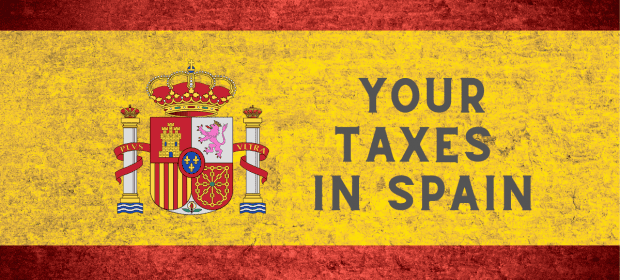Brexit uncertainty, losing access to UK bank accounts, victims of mis-sold pension and investment plans, personal visits from HMRC, and kids (sort of) go back to school
Brexit uncertainty
Not for the first time, I was asked how Brexit would affect my work in Spain. My standard answer is I don´t know, in the same way I don´t know for sure what the weather is going to be like tomorrow, irrespective of the forecasts which are given. Based on warnings, especially from social media sources, the weekend should have seen us floating down to Masymas on a dinghy. As it turned out, we had a pretty heavy shower providing some surface water in which a toy dinghy would probably have avoided running aground. Of course, I understand that other parts of Spain have suffered; coastal areas have been hit with tornadoes and waterspouts. My point is, even if you have a good idea what is going to happen, it is rare that things will happen as predicted. In fact, I´m not sure that anyone actually predicted the tornadoes. This happens so often in the financial world. With Brexit, I do not know what will happen. Deal or no deal. Take the money or open the box. Perhaps just phone a friend when necessary. I will just continue to jump the hurdles as they are laid out and not base my actions, or those of my family, on media guesswork, which is often a mile off the result.
Losing access to UK bank accounts
Headlines, both in newspapers and on the television, gave a couple of elderly people a shock. They believed they would lose access to their UK bank accounts after a no deal Brexit. This story first appeared in August this year and was highlighted again this week on television. The fact is that there will be certain banking facilities which, if there is no deal, may or may not, be available for a person living outside the UK. This refers more to deposit and loan arrangements, not to the account itself. Receiving money in the form of a pension may also be an issue in that, according to those who appear to know, making a payment from a UK pension to an EU country will be illegal. The alternative will be to have the payment made to a UK bank account for onward transfer to, say, Spain. For those, especially pensioners, who do not have a UK bank account after moving to Spain, it would be a good idea to open one in readiness for what might happen.
Mis-sold pension and investment plans
Unfortunately, I am being asked to help more and more with people who are suffering from poor financial advice. They have savings and pension arrangements that contain investments which arguably are not suitable and, to make matters worse, have not performed leaving policyholders with significant losses. In some cases, there is little we can do. The damage has already been done. However, in other cases we can restructure without incurring additional large set up costs, which are often part of the reason why these plans have not performed. We are always willing to take a look at investments without charging anything. If there is something that we can do, it will be organised in a fair and equitable manner with the details, blood, guts, and all, explained before you commit.
HMRC comes to the Costa Blanca
There was a presentation in Moraira this week with representatives from Her Majesty´s Revenue and Customs focusing on the obligation for UK tax residents to declare income from assets they hold outside the UK such as rent from a property or interest (no joke intended) on bank deposits or gains on investments. People have up until 30th September 2018 to make this declaration. For more detail you can visit this page from the UK Government website: https://www.gov.uk/government/news/hmrc-warns-its-time-to-declare-offshore-assets
The concern for some people was that they, as Spanish residents, had to declare, having missed the point, understandably, that the declaration was to be made by UK residents for foreign assets outside the UK. We already have the asset declaration for Spanish tax residents in the form of the Modelo 720. At Spectrum we can show you ways to position money within investments in what will still be EU jurisdictions post Brexit so that a) you don´t have to worry about what happens once the UK leaves b) you don´t have to declare the investment separately as this is carried out on your behalf and c) the beneficial tax calculation will still apply.
Kids back to school
Friday 7th September was the last day of summer holidays for our children, although my son will argue that they will continue until Christmas when the festive season kicks in. Since they were last in school, what seems like 10 months ago, but is actually only (!) 10 weeks, it is guaranteed that there will be a book missing or a broken pink pencil, our daughter´s favourite. However, we cannot get too excited. For our daughter, September is only half days and so work/school juggling is still a skill we have to develop.
To find out how we can help you with our financial planning in a manner protecting you and your loved ones, contact me at john.hayward@spectrum-ifa.com or call/WhatsApp 0034 618 204 731










